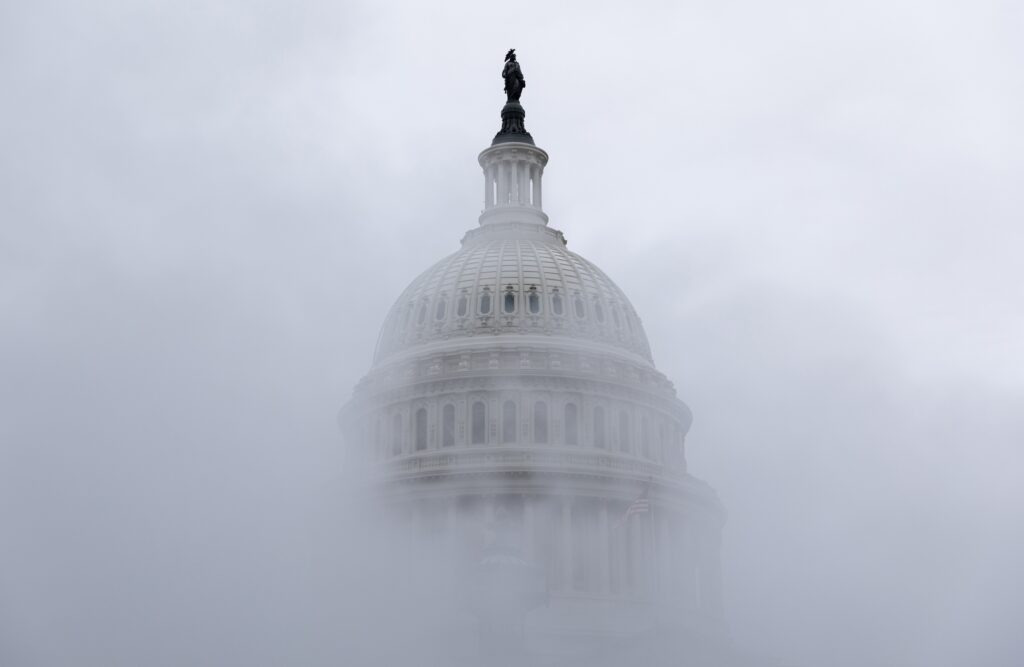[ad_1]
The United States House of Representatives passed the controversial Stop Terror-Financing and Tax Penalties on American Hostages Act (H.R. 9495) this morning, November 21, after it was defeated in an initial vote last week. The bill, which must pass in the Democrat-majority Senate to be signed into law, would give the executive branch authority to strip nonprofits’ tax-exempt status — including arts organizations — if they are found to “fund disruptive and illegal activity nationally and terrorism abroad.”
Civil rights organizations, activist groups, and nonprofits have raised alarms over the bill, warning that the legislation’s vague phrasing would grant President-elect Donald Trump unchecked power to target pro-Palestine groups and perceived political enemies. After the bill failed to pass last week in a supermajority (two-thirds) vote, a markup hearing resurrected the legislation onto the House floor once again, this time with only a simple majority requirement. According to the American Civil Liberties Union (ACLU), 100,000 messages were sent to Congress members last week urging them to oppose the bill.
While 52 Democrats supported the bill on its first pass on November 12, only 15 voted in favor today. The legislation passed with 219 votes in favor and 184 opposed, with the majority of support coming from Republicans.
“This is a troubling turn of events, particularly for the arts, where nonprofit organizations are prominent players in the form of museums, alternative art spaces, galleries, and even some publications, not to mention institutions of higher education,” wrote Hyperallergic Editor-in-Chief Hrag Vartanian earlier this week.
If the bill becomes law, nonprofits including universities and media outlets that are found to “materially” support “disruptive and illegal activity nationally and terrorism abroad” could lose their 510(c) tax exemption, which many organizations rely on to stay financially afloat. The legislation could also deter new nonprofits from forming.
In a joint statement after the bill was initially defeated last week, a coalition of Arab and Muslim affinity organizations characterized the law as “a move designed to chill free speech and stifle advocacy on behalf of Palestinian human rights.”
“Such legislation threatened the constitutional rights of American nonprofits, houses of worship, and advocacy organizations— regardless of political orientation,” the group wrote.
The House tax-writing body known as the Committee on Ways and Means, which devised the bill, wrote in a description published today that the bill’s function was to terminate “the tax-exempt status of American organizations found to be materially supporting designated terrorist groups, such as Hamas” and to provide “fair tax treatment to Americans held hostage or wrongfully detained abroad.”
The House committee claimed it found evidence that suggests “several” tax-exempt groups were using their financial designation to “fuel antisemitic activities,” including nonprofits providing money to non-tax-exempt groups like Students for Justice in Palestine.
Reached for comment by Hyperallergic, the Association of Art Museum Directors, which has over 200 members in the United States, Canada, and Mexico, shared a November 15 statement issued in part by Independent Sector and the National Council of Nonprofits, organizations to which the museum group contributes.
“We strongly support stopping bad actors from using nonprofit organizations to fund terrorism,” the statement reads. But the bill “creates redundancies and confusion while providing the executive branch with expansive new authority that could be abused,” it continues.
Hyperallergic has contacted Independent Curators International and the American Association of Museums for comment.
On November 18, 300 nonprofits sent a letter to House Speaker Mike Johnson and Democratic House Minority Leader Hakeem Jeffries warning that the bill carries the risk of “discriminatory enforcement.”
“The executive branch could use this authority to target its political opponents and use the fear of crippling legal fees, the stigma of the designation, and donors fleeing controversy to stifle dissent and chill speech and advocacy,” the missive read.
[ad_2]
Source link

